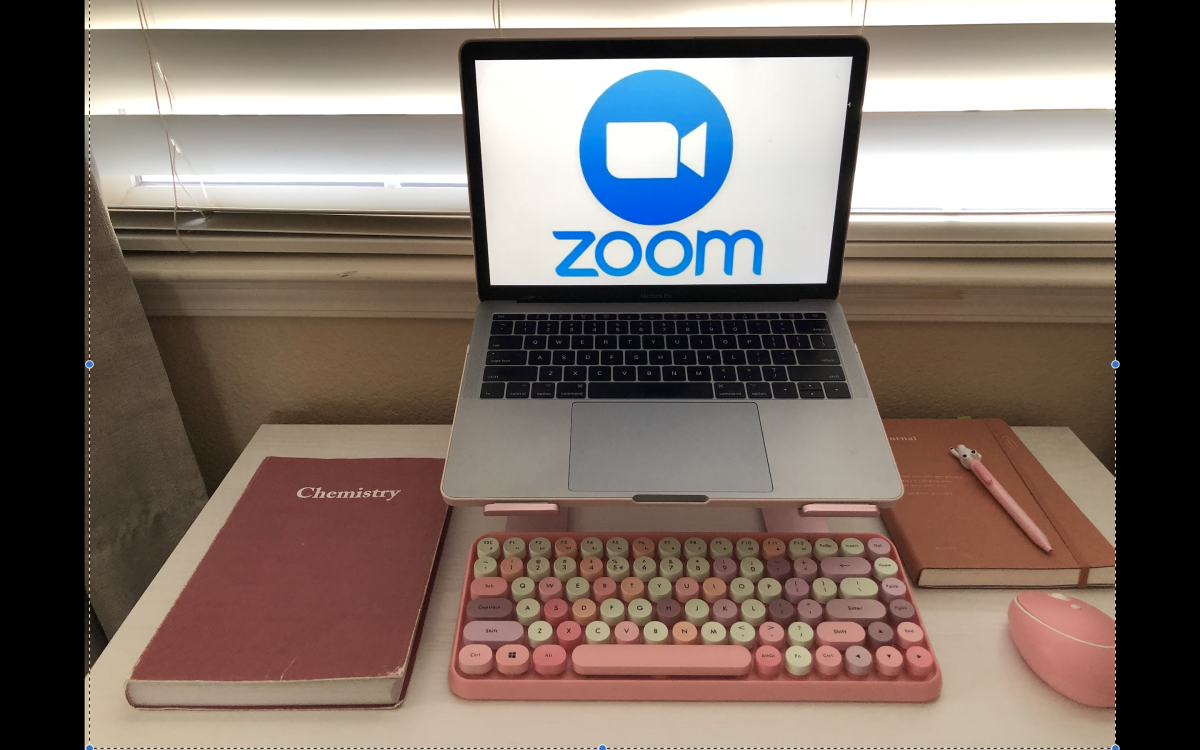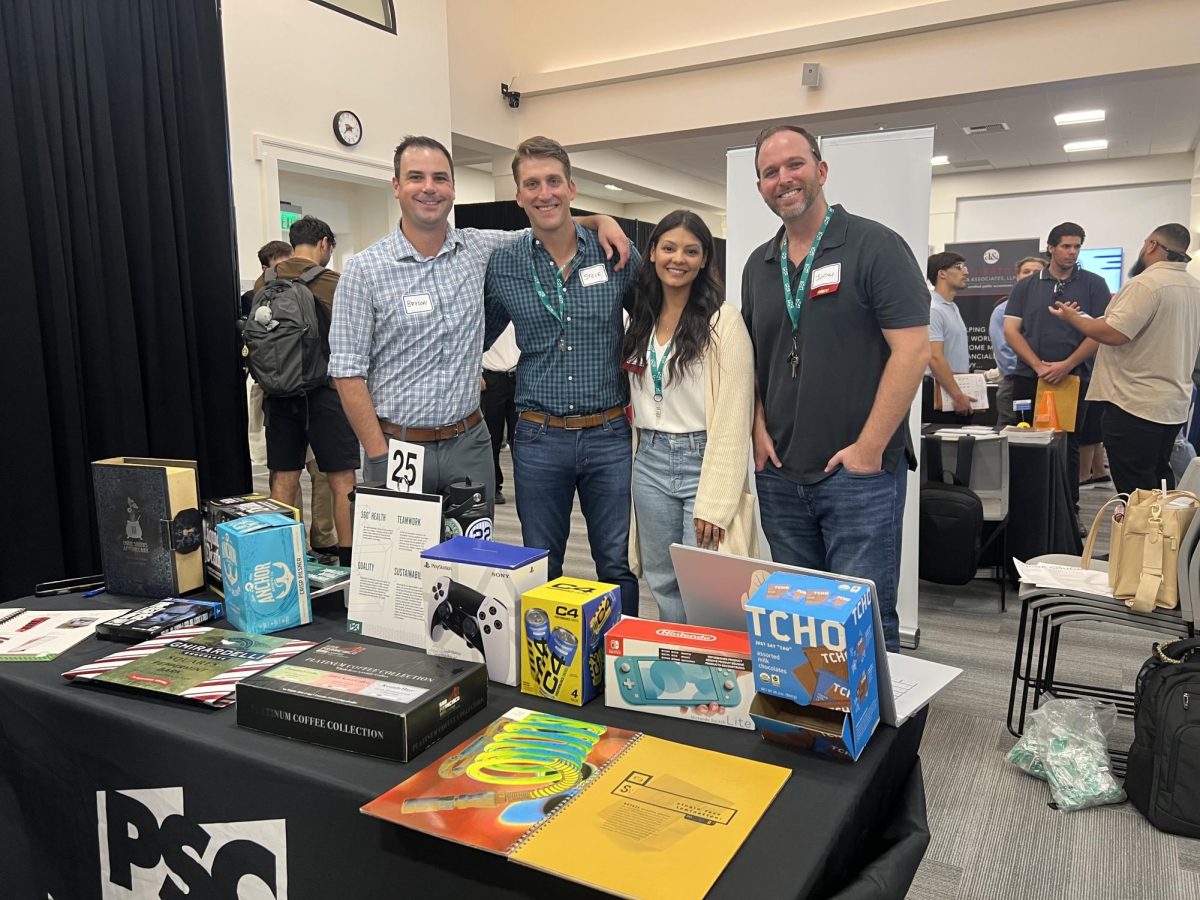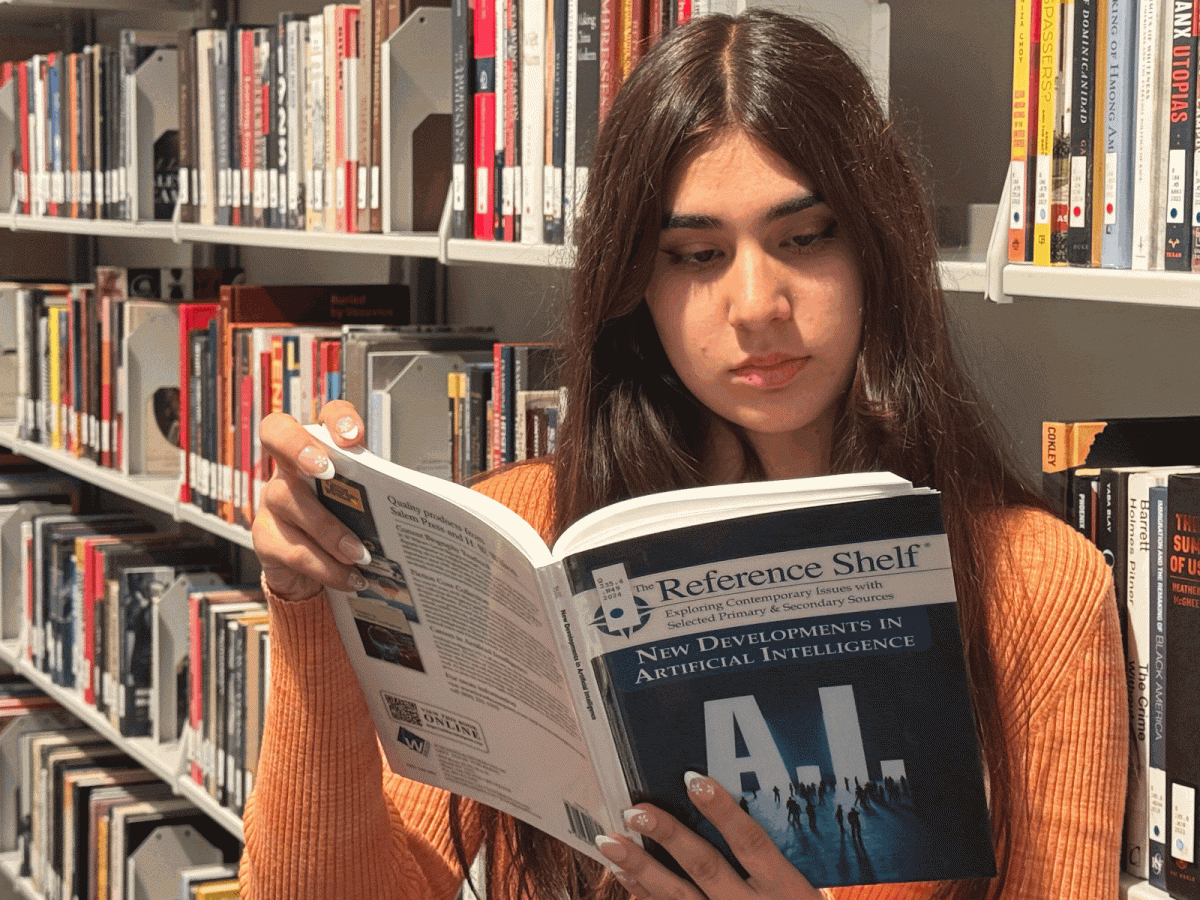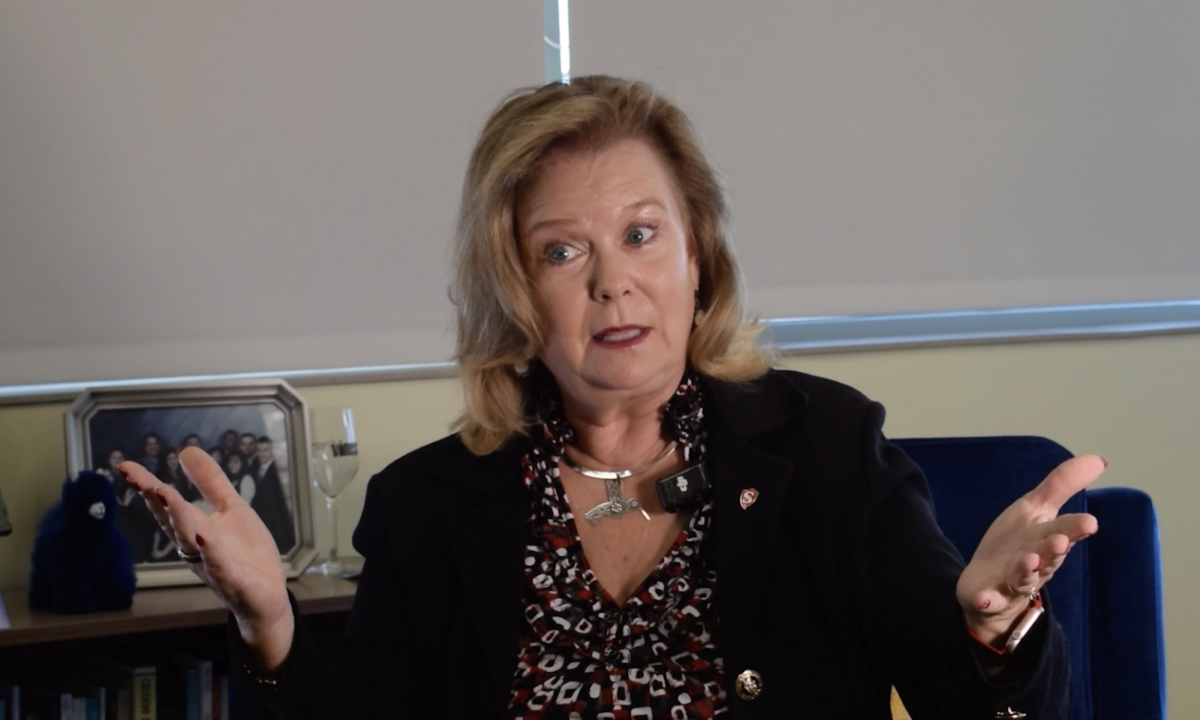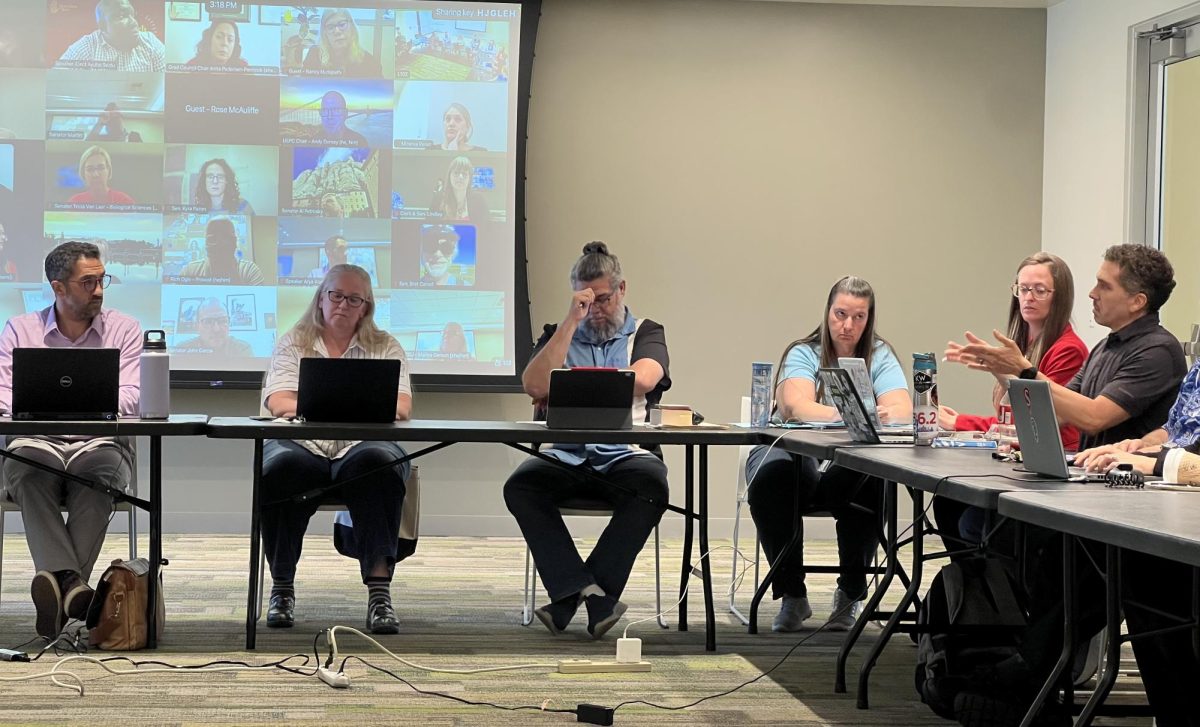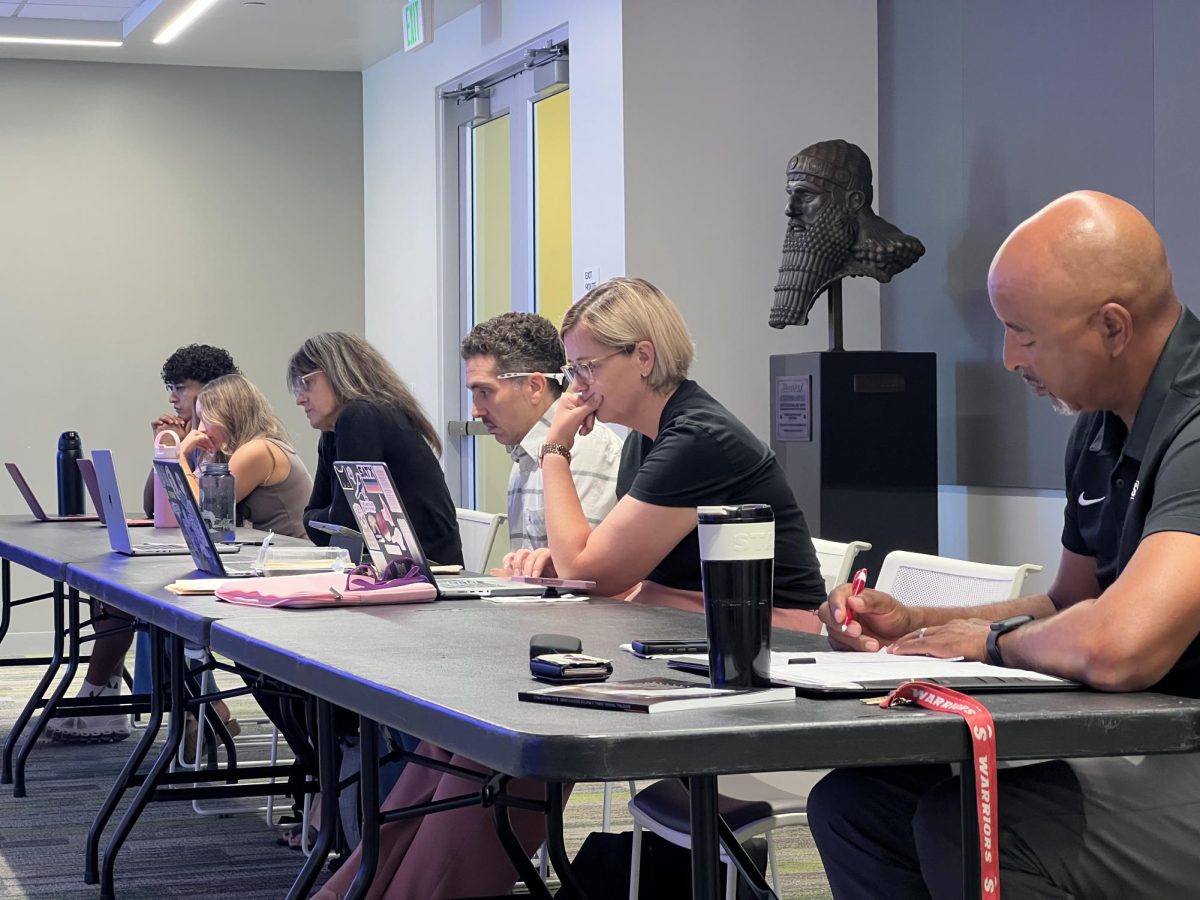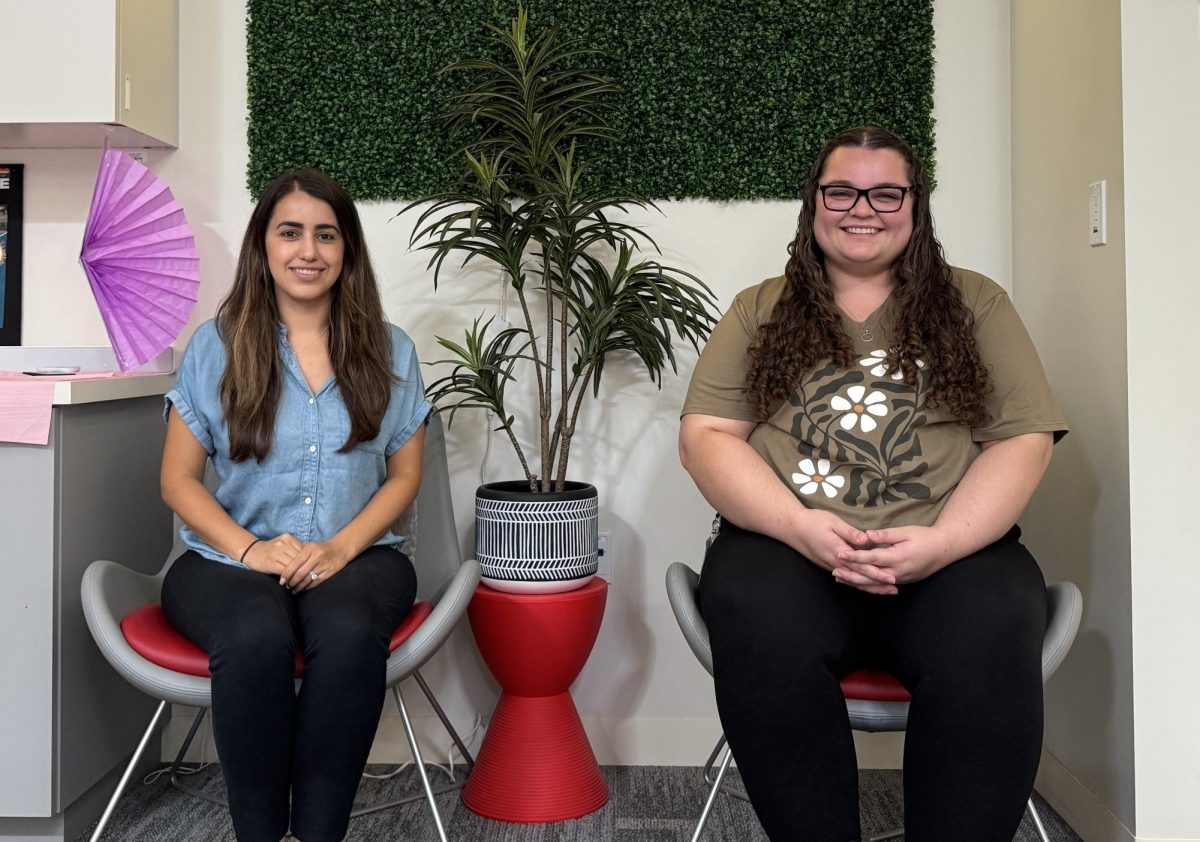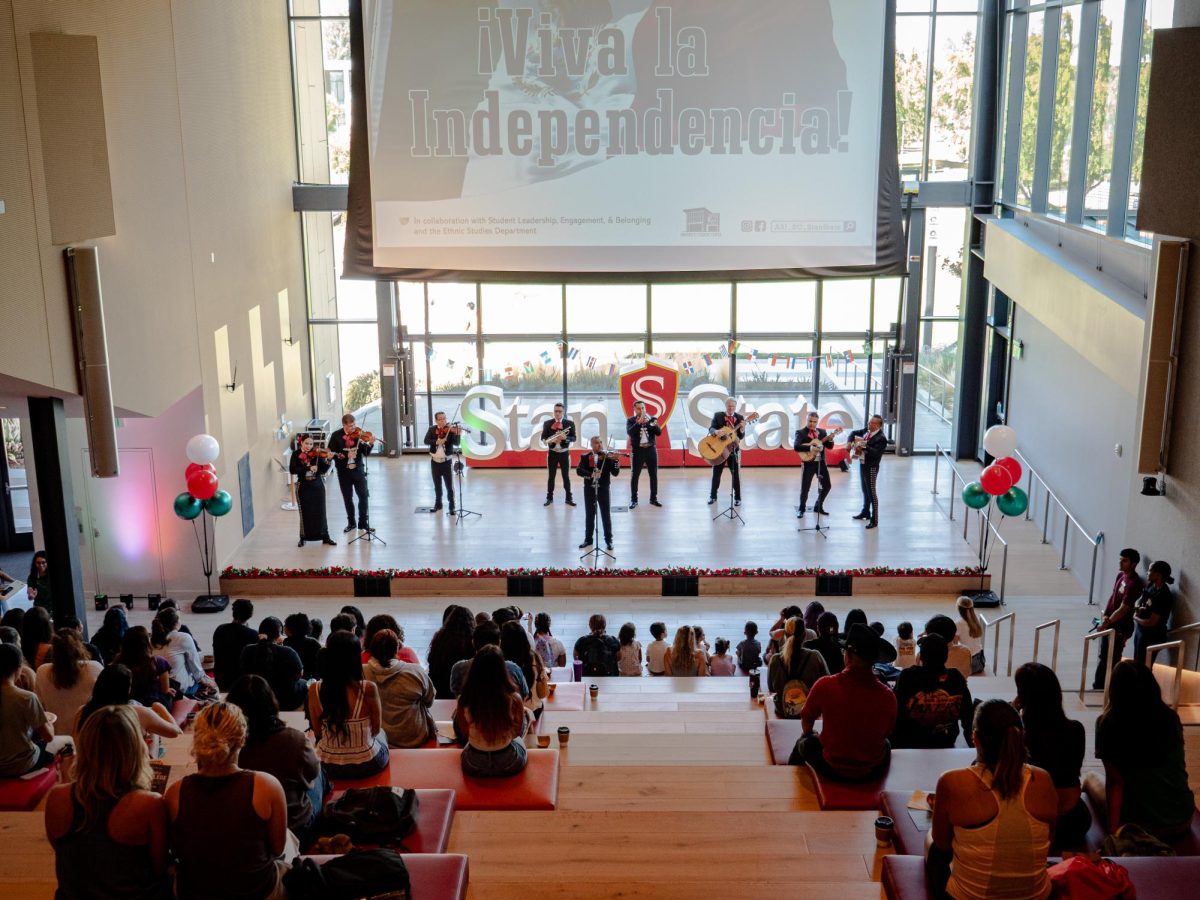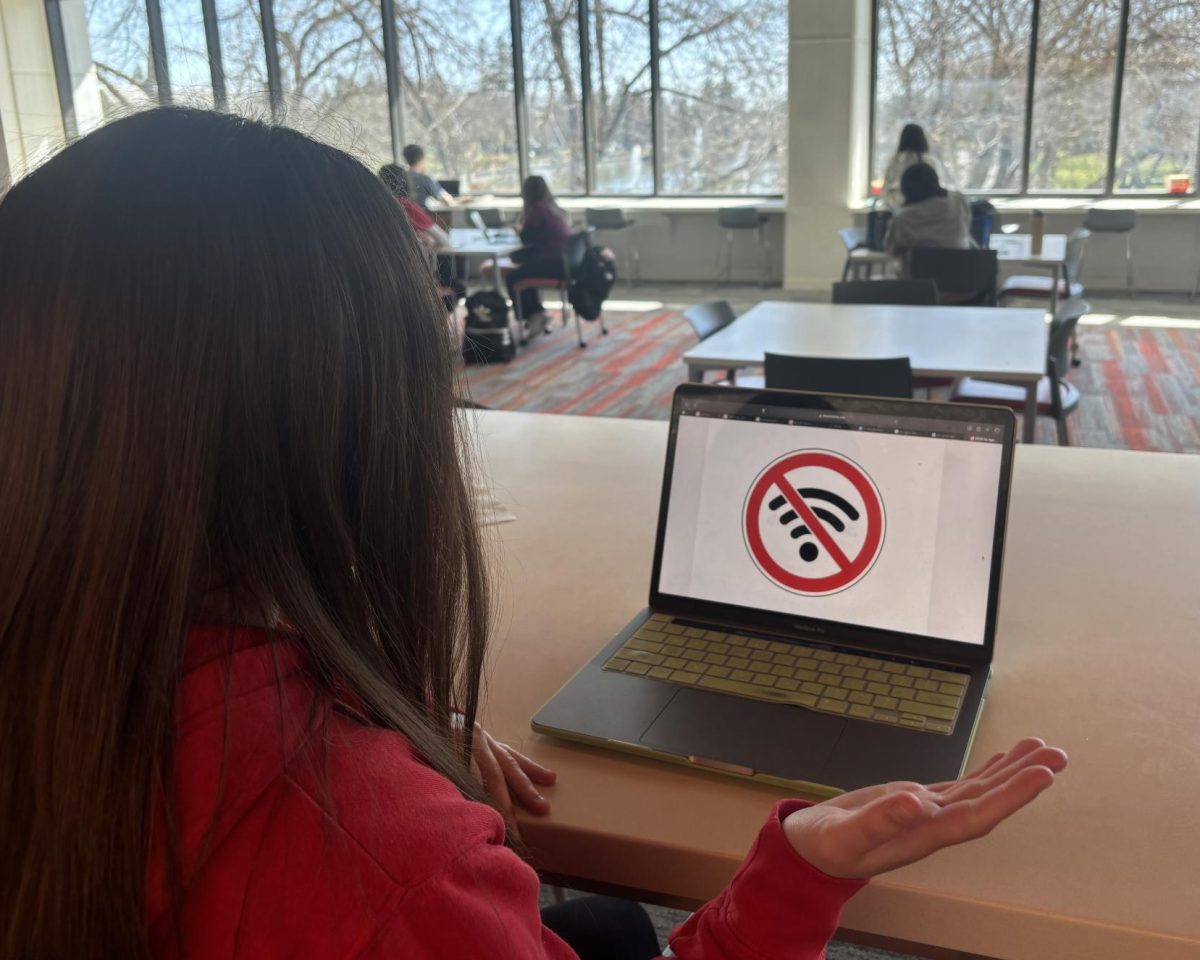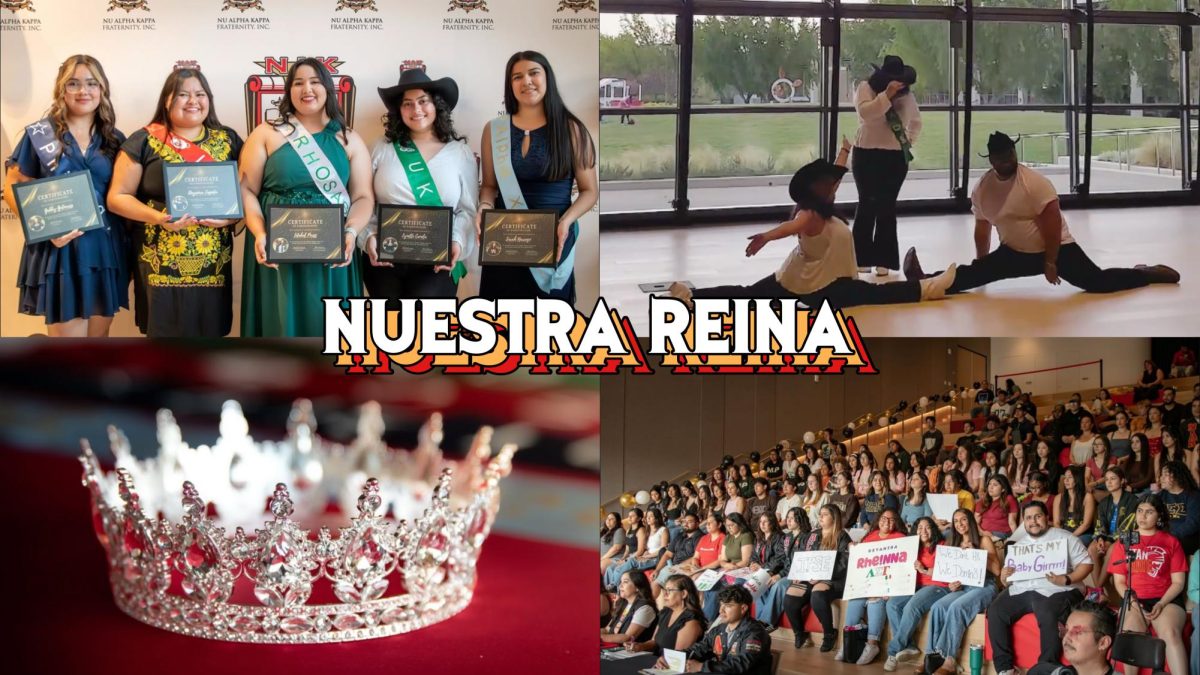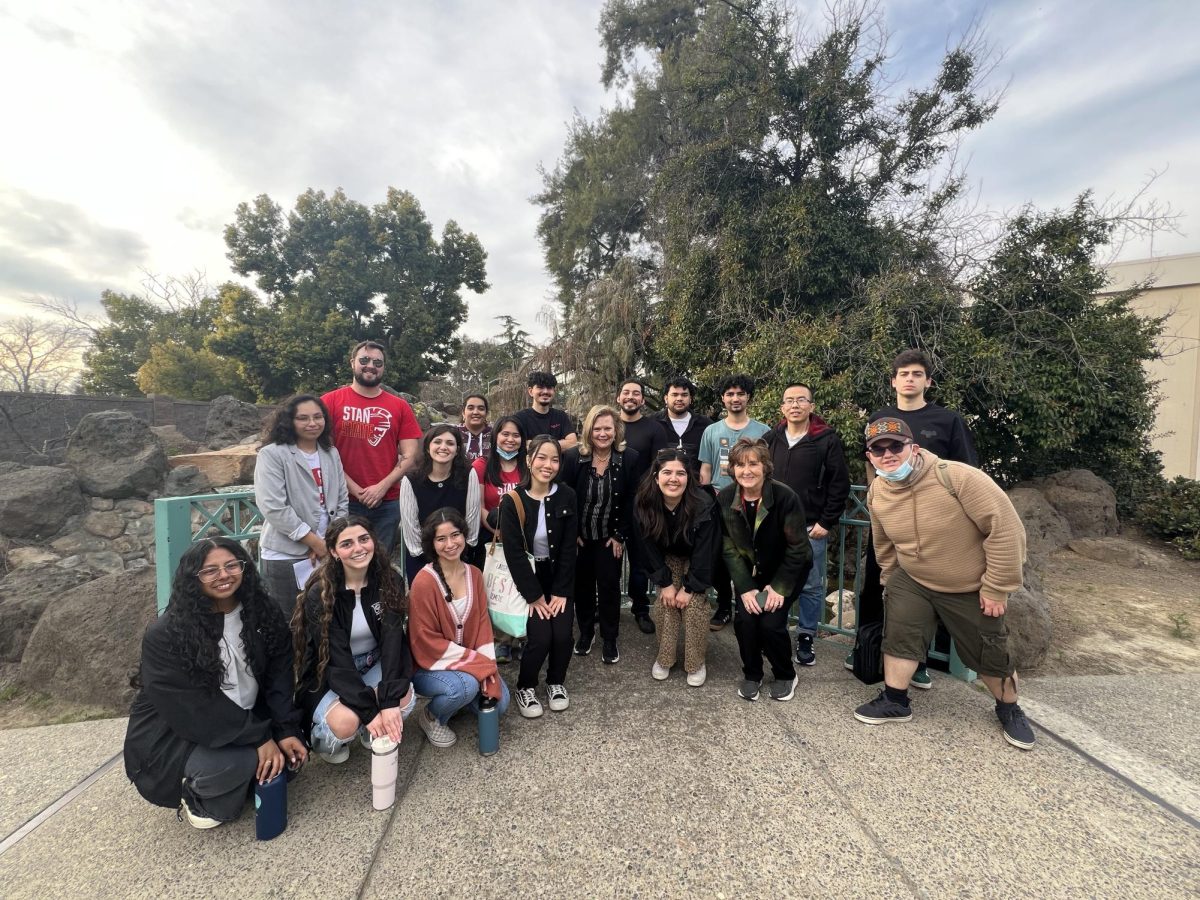With the COVID pandemic forcing colleges to transition to an online learning format, many students have had to sacrifice the social component of their college experience. For many freshmen, this has made it difficult to form connections and a sense of community on their new campus.
Lillian Ladd (freshman, Agriculture) shares her expectations of her first year in college. “I really did not expect to attend my first year of college from my room. I expected to meet new people from different places, attend classes, and engage in coursework that was more in depth than the work I did in high school.”
With their first year of college being online, some Stan State freshmen believe that their first year of college has been robbed from them. Marissa Grubb (freshman, Nursing) says, “I feel that this year, since it is online, I am missing out of the whole college experience. I haven’t gotten to really express the new freedom of being an adult and a college student. I really wanted to get more involved in school this year as well as meet and grow bonds with new people.”
This attitude towards online education is a similarly shared experience of many Stan State freshmen. Garrett Bryan (freshman, Agriculture) shares his college experience saying, “Pre-coronavirus, I imagined that my college life would look like living in a dorm on campus. I did not expect to be completely online for school and living with my parents. I know I’m missing out on lots of things. The biggest one is making friends. Since most of my friends from high school have moved away for college, I was really looking forward to meeting some new people and joining new friend groups. I was also looking forward to living on my own and taking the next step towards adulthood. Now, it feels like I’ve moved several steps back in life because I live with my parents, I do not see my close friends regularly, and I am spending much of my day indoors and on my computer. All these things cannot be healthy for any young individual who is starting their life.”
Virtual classes and in-person classes come with their differences. One of these differences is that the freshmen have detected is that their quality of education has plummeted with the online transition.
In regards to the issue Bryan shares, “So far, the quality of my education has been poor. Being online I find that I and many of my professors may have succumbed to laziness. I have the lost motivation to learn and it seems that some of my professors have lost motivation to teach. We are the outcome of the lack of accountability that company and human interaction enforces. I do believe that the quality of my education would be 10 times better if I were on campus and in person. This also leads me to question of why I or anyone else should be paying full tuition during this time. Who pays full price for rotten fruit?”
Grubb has also had struggles when it comes to distance learning. “I get distracted easily so when there’s too much noise while I’m trying to study or take a test I can’t focus. Wi-Fi issues can also be a struggle as well as if I am presenting over Zoom and someone walks in the house and doesn’t know I need it to be quiet. It can be a little embarrassing hearing them talk. It is also really hard to make school friends unless you get involved into an organization on campus.”
Dr. Sarah Bissonnette (Professor in Biological Science) is aware of the burn out her freshmen students are experiencing. “I think a lot of us are feeling online-learning-fatigue. At the beginning I think there was more of a sense of everyone wanting to make the best of things, but as time has gone on it feels like it’s getting harder and harder to keep motivation and spirits high. That’s why I really try to keep a positive energy in my synchronous class. If you don’t have a positive attitude about learning it’s so much harder to do.”
In regards to difficulties that freshmen students are experiencing with online learning, Bissonnette shares her hopes for the future, “I definitely have a handful of students who decided to take this semester off because they found online learning so challenging in the fall, but most of my students are still trying to make the best of it. Now that more and more people are getting vaccinated, it definitely feels like there’s a light at the end of the tunnel.”
Although an online college experience is not what Stan State’s incoming freshmen were expecting, the experience is not entirely negative. Grubb shares a positive sentiment that she has discovered about distance learning, “I’m doing college online from home. By doing this I can get more sleep, I save money on gas, I can work more, and I can also be at home more than I would’ve if I was leaving for school.”
While these freshmen are facing a different college experience than the generations before, they have collected words of advice for potential incoming freshmen that will be navigating their first year online.
Bryan says, “Find a hobby or a job to take up your free time (you’re going to have a lot of it). In your online classes, don’t be afraid to ask people for their numbers or to add them on Snapchat. I make it a goal to have contact with at least one person from each of your classes. This way you don’t feel alone in a class and you can ask questions. I’ve gotten to know several people just through text or Snapchat and they have helped me out a lot.”
The online college experience is something that comes with its own victories and struggles that these students have shared. Although the online college experience is not what these freshmen were anticipating, they have made the most of being able to conquer their journey the best they can.

